Recente discussies
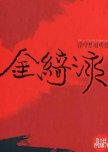

Similar adaptation
Prior to the adoption of Confucianism, it was the tradition to abandon one's parents on a mountainside if they were over 70 years of age. In the ancient kingdom of Goryeo, now modern Korea, a nobleman defies this tradition when he refuses to leave his mother to starve to death.
Prior to the adoption of Confucianism, it was the tradition to abandon one's parents on a mountainside if they were over 70 years of age. In the ancient kingdom of Goryeo, now modern Korea, a nobleman defies this tradition when he refuses to leave his mother to starve to death.


Both are BL. Also cooking and food is one of the main theme. In sugar dog life, the MLs live together for a while and in Aki and Haru, they live together for the whole plot. A quick entertaining watch
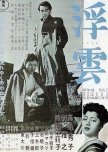

Carefree Male lead similar vibe
different story - both do whatever they wish
greater consequence
Floating Clouds (1955) - great cheater
different story - both do whatever they wish
greater consequence
Floating Clouds (1955) - great cheater


Carefree Male lead similar vibe
different story - both do whatever they wish
greater consequence
Genres: Psychological, Crime, Drama
Tags: Organized Crime, Mafia, Nudity, Yakuza
different story - both do whatever they wish
greater consequence
Genres: Psychological, Crime, Drama
Tags: Organized Crime, Mafia, Nudity, Yakuza

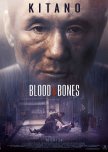
Carefree Male lead similar vibe
Genres: Crime, Drama
Tags: Serial Killer Male Lead, Serial Killings, Japanese New Wave, Sexual Content, Death, Nudity, Murder, Adapted From A Novel, Noir
Genres: Crime, Drama
Tags: Serial Killer Male Lead, Serial Killings, Japanese New Wave, Sexual Content, Death, Nudity, Murder, Adapted From A Novel, Noir


A washed up mature male who ended up living with a mentally challenge younger family member. He struggled with life but has learned and indirectly help the youngster overcome with their life challenges.
Uncle niece relationship. Rough uncle, weak niece but their relationship growth. Bad and evil people surrounding plotting to break them apart


Both has uncle that just came out of jail, had rough time, live with niece/nephew, both struggle but loving, caring and bonding came naturally.
Another movie that tells the perspective of different characters. There are 3 storyline in Anger (2016). Both movies reminds viewers to not be too quick to condemn anyone without knowing the whole story.


.........................................................
....................................................................
....................................................................
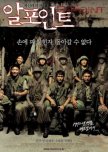

It is set during World War II and is horror-based, but rather than zombies, it's a curse they try to survive.
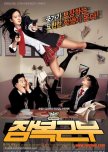
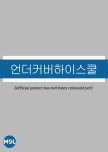
- ML/FL goes undercover/disguised as a student
- Both has Action, Thriller
- UHS ML is a NIS Agent who got demoted whereas SOD is a Police Officer
- I enjoyed the movie let's hope for the drama as well
- Both has Action, Thriller
- UHS ML is a NIS Agent who got demoted whereas SOD is a Police Officer
- I enjoyed the movie let's hope for the drama as well
3 sister dynamic. Their appeared differences, bonding, trust and mistrust. Love, caring, hate, jealous, happiness, joy,
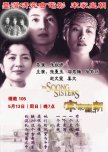

3 sisters story. 3 sisters grew up separately. Different countries, 3 strong personality women. Their different fate, blood connection, political, cultural and believe differences …
Both movies are about father passed away and the complicated family dynamic. The children came together awkwardly, the secret left behind, the mystery, the past, the present and the effect on the children future







